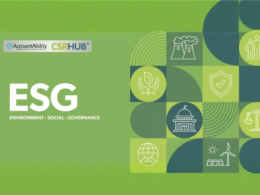The International Civil Aviation Organization (ICAO) has confirmed that the Verified Carbon Standard (VCS) Program remains eligible for the second phase of the Carbon Offsetting and Reduction Scheme for International Aviation (CORSIA), covering the first compliance period from 2027 to 2029. The decision, announced this week, strengthens ICAO’s recognition of the VCS Program as one of the world’s most credible and robustly governed carbon credit mechanisms.
The updated eligibility expands the pool of Verified Carbon Units (VCUs) that may be used to meet CORSIA obligations, offering airlines greater flexibility in sourcing offsets. ICAO also published a revised CORSIA Eligible Emissions Units document, which outlines the eligible methodologies and vintages for both the first and second phases of CORSIA.
In a notable policy shift, ICAO reversed previous exclusions for several VCS methodologies that had been deemed ineligible for the first phase (2024–2026). These now qualify for both the first and second phases:
- VMR0006: Energy Efficiency and Fuel Switch in Thermal Applications
- AMS.II.G: Energy Efficiency Measures Using Non-Renewable Biomass
- VM0049: Carbon Capture and Storage, when paired with methodologies VMD0056 (Direct Air Capture) and VMD0058 (Storage in Saline Aquifers and Depleted Hydrocarbon Reservoirs)
However, projects using TOOL 30 to calculate the fraction of non-renewable biomass (fNRB) are still excluded from the second phase due to methodological concerns.
ICAO has also introduced exclusions for certain project types under the second phase:
- Projects using VM0052 (Accelerated Retirement of Coal-Fired Power Plants) and VMD0060 will remain ineligible pending review by ICAO’s Technical Advisory Body (TAB) in 2026.
- Clean cooking projects relying on CDM TOOL 30 to calculate fNRB.
- CCS projects using VM0049 that do not comply with CORSIA’s Regulatory Scheme for Geological CCS.
- Projects lacking quantitative evidence that their emissions baselines are set below business-as-usual levels or that risk overestimating mitigation outcomes—especially for non-traditional activities such as jurisdictional programmes.
In response to the updated framework, Verra—administrator of the VCS Program—has committed to updating its CORSIA Label Guidance document in the coming weeks and will continue engaging with ICAO’s Technical Advisory Board to clarify remaining exclusions.
Verra has also recently introduced tools to safeguard the integrity of CORSIA-eligible credits, including:
- Finalised insurance criteria to address double claiming risks between host countries and airline operators.
- A CORSIA Accounting Representation Deed, ensuring insurers agree to compensate for any VCUs affected by double claiming.
A list of approved insurance carriers and products is expected soon, supporting full implementation of post-2021 VCU labelling for aviation offsets.
The announcement signals growing regulatory clarity as ICAO prepares to operationalise CORSIA’s second phase, reinforcing the role of high-integrity carbon markets in decarbonising global aviation.














